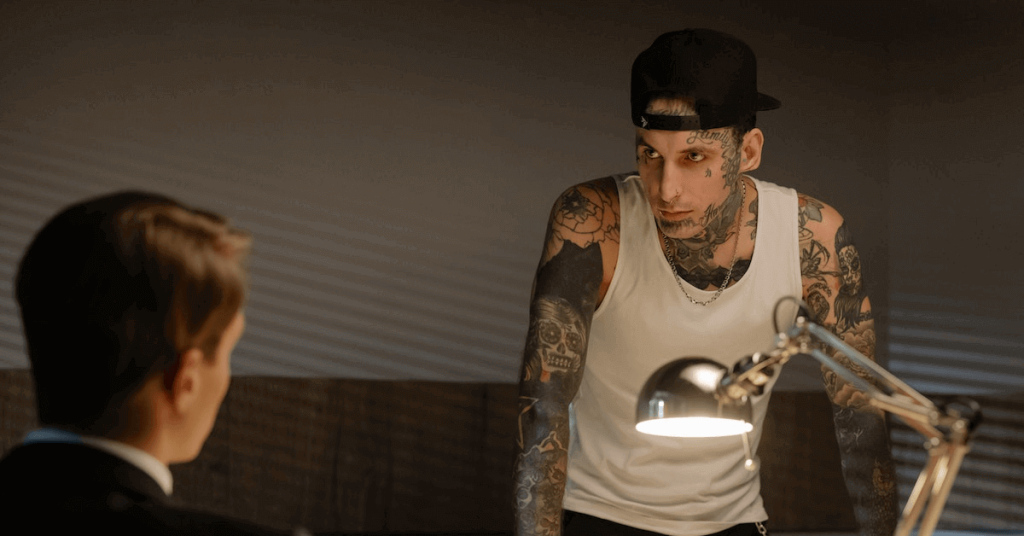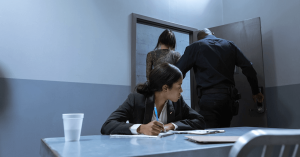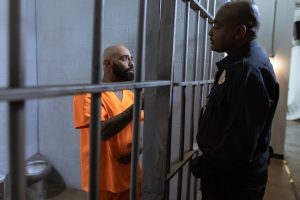In Australia, you have the right to remain silent, which means you can refuse to talk to the police without a lawyer present.
There are some situations where you have to provide the police with answers to their questions and if you refuse to do so you are breaking the law. For example, if they ask you to provide your name and address or if they ask you a question about an accident you witnessed.
If you don’t know what to say or feel uneasy, you can ask for a lawyer before you answer any questions. However, if you do choose to speak, exercising caution is paramount to avoid pitfalls. Delve into the specifics of what to refrain from saying in order to navigate the situation prudently.
Refusal to Attend Police Interviews
At any time, you can tell the police that you don’t want to be interviewed.
You have the right to remain silent. You have the right to stay silent whether or not you are in jail.
No matter where the police ask you questions—on the street, at your home, or while you are being arrested or held in custody—you have the right to stay quiet and not answer.
Does Skipping a Police Interview Signal Non-Cooperation?
Refusing to attend a police interview doesn’t necessarily mean you are being uncooperative.
You have the right to decline a voluntary interview with the police, and in some cases, it may be in your best interest to do so.
It is important to consult a lawyer before agreeing to be interviewed so that you can make an informed decision about whether or not to participate.
It’s important to remember that you can still be polite and respectful while exercising your rights.
If you choose not to attend an interview, communicate your decision respectfully and consider discussing your choice with a lawyer.
How Long Can the Police Make Me Stay for Questioning?
Once a person has been arrested, the police only have a certain amount of time to talk to them and do more research.
A reasonable amount of time could be up to 6 hours unless officers ask for it to be longer (by getting a detention warrant) for up to another 6 hours.
Also read: Can I Refuse to Give a Police Statement?
Right to Silence in Identifying Yourself in Photos and Videos as Evidence
You can refuse to physically identify yourself in any physical evidence shown to you by the police officer.
If the photos, CCTV footage, or videos presented to show your identity are pretty evident that it is impossible to refuse to answer police interviews, it would be best to ask for your lawyer to seek legal advice regarding the consequences of confirming your identity to police interviews.
Always remember that confirming that you are the person in the hard evidence gathered could lead to police charging you directly for the crime. It could be used as evidence against you.
When Must I Confirm My Identity to Police?
According to Law Enforcement (Powers and Responsibilities) Act 2002 No 103, here are some of the circumstances that a person need to identify themselves to the police and the penalties for noncompliance:
- When the police reasonably suspect that a person may be able to assist in the criminal investigation of a suspected indictable offence because they were present at or near the alleged crime scene, $200 is the maximum penalty for noncompliance.
- If the officer reasonably suspects an AVO has been issued against the suspect. The maximum penalty for noncompliance is $200.
- The person in question was a driver, passenger, or vehicle owner, and the officer has reasonable suspicion that they were involved in an illegal activity. The maximum sanction for noncompliance is $5,500 or one year in prison, or both.
- The individual was involved in a car accident in which someone was injured or killed. It could also be when the person neglectfully or chose not to provide their information to the other driver involved in the accident. Also, in a situation where any of the vehicles were towed. Lastly, in cases when a police officer requests their information. Within 24 hours of a car accident, a person must provide their identity and address, the owner’s name and address, and the vehicle registration information. A person will also be required to explain the circumstances surrounding the accident. Before explaining, it would be prudent to consult a counsel if you find yourself in this situation. The maximum possible penalty for noncompliance is $2,200.
The Right to Remain Silent Limitations
It is illegal to refuse to answer a police query if you conceal information about a serious indictable offence.
A severe indictable offence carries a maximum sentence of five years or more in prison. The maximum penalty for refusing to answer is two or five years if the information is used for personal gain.
This frequently occurs in drug-related crimes such as illegal dealerships or usage, wherein relatives turn a blind eye to protect an offender.
Also read: Who Decides If Someone Is Charged
Conclusion
Question: Can you refuse to answer police questions without a lawyer?
Answer: In Australia, you have the right to remain silent, which means you can refuse to talk to the police without a lawyer. In some situations you will be required to answer the police, and failure to do so may lead to you breaking the law. If you are unsure of your rights and obligations it is best to speak with a lawyer.
Need Guidance On Attending Police Interviews?
At Justice Family Lawyers, we understand the difficulty of attending a police interview. We are committed to providing our clients with the highest quality legal advice and representation.
Our AVO lawyers and practitioners are highly experienced and knowledgeable, and we are committed to helping our clients receive the best possible outcome.





